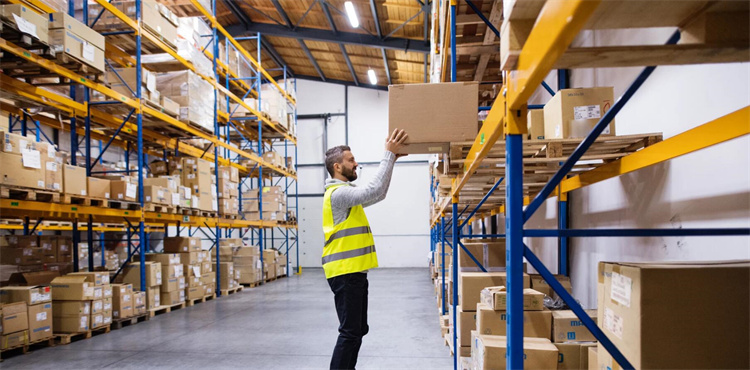Strategies to Overcome Challenges in Cold Chain Logistics

Temperature-controlled logistics plays a vital role in preserving the integrity of temperature-sensitive products like food, vaccines, and pharmaceuticals. Even minor temperature fluctuations can lead to spoilage, reduced shelf life, or compromised quality. With the global cold chain logistics market projected to grow from $324.85 billion in 2024 to $862.33 billion by 2032, the demand for reliable solutions has never been higher. However, challenges such as supply chain disruptions and maintaining consistent conditions during transit continue to test logistics providers. Overcoming challenges in temperature-controlled logistics requires innovative strategies to ensure product safety and quality.
Key Takeaways
Implement real-time temperature monitoring using IoT sensors to ensure the integrity of temperature-sensitive products during storage and transit.
Leverage AI for predictive analytics to anticipate potential temperature deviations, allowing for proactive measures to prevent spoilage.
Invest in staff training on compliance standards to minimize errors and enhance operational efficiency in handling temperature-sensitive goods.
Utilize JUSDA's JusLink platform for streamlined documentation and audit processes, ensuring adherence to regulatory requirements effortlessly.
Optimize transportation routes and develop contingency plans to mitigate risks associated with delays and infrastructure gaps.
Adopt advanced technologies like blockchain for enhanced transparency and traceability in cold chain logistics, building trust with stakeholders.
Embrace predictive analytics for effective inventory management, ensuring the right stock levels of perishable goods to reduce waste and meet demand.
Ensuring Effective Temperature-Controlled Logistics

Challenges in Maintaining Temperature Consistency
Maintaining consistent temperatures throughout the cold chain logistics process remains a significant challenge. Temperature-sensitive goods, such as vaccines, fresh produce, and pharmaceuticals, require precise conditions to preserve their quality. Even minor temperature deviation can lead to spoilage or reduced efficacy, resulting in financial losses and compromised safety.
Transportation and storage environments often expose temperature-sensitive products to risks. Equipment malfunctions, delays during transit, or improper handling can disrupt the conditions required for these items. For logistics providers, ensuring that temperature-controlled shipments remain within the desired range demands constant vigilance and advanced solutions.
Solutions for Real-Time Temperature Monitoring
Leveraging IoT and AI for Predictive Monitoring
Real-time monitoring has revolutionized temperature-controlled logistics by providing continuous oversight of temperature-sensitive items. IoT-enabled sensors track critical parameters like temperature and humidity during storage and transit. These devices transmit real-time data, allowing you to monitor conditions remotely and respond promptly to any anomalies. Unlike traditional methods, IoT technology enhances transparency and traceability, ensuring better control over temperature-sensitive goods.
AI-powered systems take this a step further by predicting potential issues before they occur. By analyzing historical data and current conditions, AI can identify patterns that may lead to temperature deviation. This predictive capability enables proactive decision-making, reducing the risk of spoilage. For example, if a sensor detects a gradual rise in temperature, AI can alert you to take corrective action immediately, safeguarding the integrity of your shipments.
JUSDA's Advanced Warehouse Solutions for Temperature-Sensitive Goods
JUSDA offers state-of-the-art warehouse solutions designed to meet the unique needs of temperature-sensitive products. With facilities equipped with advanced management systems like JusLink, you gain access to real-time monitoring and inventory tracking. These systems ensure that your goods remain in optimal conditions throughout their storage period.
JUSDA's global network of warehouses provides tailored solutions for various industries, including medical, automotive, and FMCG. The integration of IoT and AI technologies within these facilities enhances operational efficiency and minimizes risks associated with temperature deviation. By leveraging JUSDA's expertise, you can maintain the quality of your temperature-controlled shipments while optimizing logistics processes.
Overcoming Regulatory Challenges in Cold Chain Management
Key Compliance Issues in Cold Chain Logistics
Regulatory compliance forms the backbone of effective cold chain logistics. Agencies like the World Health Organization (WHO) and the Food and Drug Administration (FDA) enforce strict guidelines to ensure the safety and quality of temperature-sensitive products. These regulations aim to protect consumers, preserve the efficacy of medicines, and maintain the nutritional value of perishable foods. For you, as a logistics provider, noncompliance can lead to severe consequences, including fines, shipment rejections, and wasted products.
One of the most critical compliance issues involves maintaining accurate temperature records throughout the supply chain. Authorities often require detailed documentation of storage and transit conditions to verify adherence to standards. Even slight deviations in temperature can compromise product integrity, especially in industries like pharmaceuticals and food. Additionally, the Food Safety Modernization Act (FSMA) emphasizes safe handling practices, making it essential for you to implement synchronized procedures and precise equipment.
Another challenge lies in navigating the diverse regulatory frameworks across regions. Different countries impose varying requirements for cold chain management, adding complexity to global operations. Without proper systems in place, you risk delays, increased costs, and potential legal disputes. Staying informed about these regulations is vital to ensure smooth operations and avoid disruptions.
Strategies for Navigating Regulatory Requirements
Training Staff on Compliance Standards
Your team plays a crucial role in maintaining compliance. Proper training equips them with the knowledge to handle temperature-sensitive products effectively. By understanding the specific requirements of cold chain logistics, your staff can minimize errors and ensure adherence to regulations. Training programs should focus on:
Safe handling practices for temperature-sensitive goods.
Accurate documentation of temperature data during storage and transit.
Familiarity with regional and international regulatory standards.
Investing in staff education not only reduces compliance risks but also enhances overall operational efficiency. A well-trained team ensures that your supply chain management processes align with industry expectations.
Utilizing JUSDA's JusLink Platform for Documentation and Audits
JUSDA's JusLink platform offers a comprehensive solution for managing regulatory requirements. This advanced system simplifies documentation and audit processes, ensuring that you meet compliance standards effortlessly. With real-time tracking and data integration, JusLink provides complete visibility into your cold chain logistics operations.
The platform enables you to maintain accurate records of temperature conditions, which are essential for audits and inspections. Its user-friendly interface allows you to generate reports quickly, saving time and reducing administrative burdens. By leveraging JusLink, you can streamline compliance efforts and focus on delivering quality service to your clients.
Moreover, JusLink's integration of IoT and big data enhances traceability, helping you identify potential issues before they escalate. This proactive approach minimizes risks and ensures that your temperature-controlled logistics remain reliable and efficient.
"Compliance is not just about meeting regulations; it’s about building trust with your customers and partners." By adopting these strategies, you can navigate the complexities of cold chain management while maintaining the integrity of your products.
Strengthening Infrastructure and Transportation in Cold Chain Logistics

Infrastructure Gaps in Temperature-Controlled Logistics
Infrastructure plays a critical role in ensuring the success of cold chain logistics. However, gaps in infrastructure often lead to inefficiencies and losses. Many regions lack adequate temperature-controlled storage facilities, which creates significant challenges when transporting temperature-sensitive products. Uneven cooling standards across global supply chains further complicate operations, making it difficult to maintain consistent conditions.
Failures in infrastructure can result in severe consequences. For example, power interruptions may cause cooling systems to fail, leading to the spoilage of valuable goods. High-profile cases, such as vaccine storage failures in Canada and the United States, highlight the importance of robust infrastructure. These incidents not only result in financial losses but also compromise public trust in the supply chain.
Transportation infrastructure also faces hurdles. Delays in refrigerated transportation due to poor road conditions or inadequate planning can disrupt the cold chain. Without proper contingency measures, these delays may expose products to unsuitable temperatures, reducing their quality and shelf life. Addressing these gaps is essential for logistics providers to ensure the reliability of temperature-controlled logistics.
Solutions for Robust Cold Chain Infrastructure
JUSDA's Global Warehouse Network for Efficient Storage
JUSDA offers a comprehensive global warehouse network designed to support the needs of cold chain logistics. These facilities provide advanced temperature-controlled packaging solutions to ensure the safety of your products. With warehouses strategically located across regions, you can store goods closer to their destinations, reducing transit times and minimizing risks.
The integration of cutting-edge technologies like IoT and AI within JUSDA's warehouses enhances operational efficiency. Real-time monitoring systems allow you to track temperature conditions and respond promptly to any deviations. This proactive approach ensures that your temperature-sensitive products remain in optimal conditions throughout their storage period. By leveraging JUSDA's expertise, you can overcome infrastructure gaps and streamline your logistics operations.
Route Optimization and Contingency Planning
Efficient transportation is vital for maintaining the integrity of temperature-controlled logistics. Route optimization helps you identify the fastest and most reliable paths for refrigerated transportation. Advanced software tools analyze traffic patterns, weather conditions, and other variables to create efficient delivery schedules. This reduces transit times and minimizes the risk of temperature fluctuations.
Contingency planning is equally important. Unexpected events, such as equipment breakdowns or road closures, can disrupt the cold chain. Having backup plans in place ensures that your products reach their destination without compromising quality. For instance, alternative routes or additional refrigerated transportation units can mitigate delays and maintain temperature consistency.
By adopting these strategies, you can address the challenges of infrastructure gaps and enhance the reliability of your cold chain logistics. Investing in robust infrastructure and transportation solutions not only protects your products but also strengthens your reputation as a trusted logistics provider.
Optimizing Inventory Management for Cold Chain Logistics
Challenges in Managing Perishable Inventory
Managing perishable inventory presents unique challenges for any logistics provider. Temperature-sensitive products like fresh produce, vaccines, and pharmaceuticals require precise handling to maintain their quality. Even slight delays or errors in storage conditions can lead to spoilage, financial losses, and customer dissatisfaction.
One of the biggest hurdles lies in predicting demand accurately. Overestimating demand can result in excess inventory, which increases the risk of spoilage. Underestimating demand, on the other hand, can lead to stockouts, disrupting supply chains and affecting customer trust. Balancing these factors becomes even more complex when dealing with temperature-controlled logistics, where time and conditions are critical.
Another challenge involves tracking inventory in real time. Without proper visibility, you may struggle to identify potential issues like temperature deviations or inventory shortages. This lack of transparency can lead to inefficiencies and missed opportunities to optimize your operations. For logistics providers, addressing these challenges is essential to ensure the reliability of cold chain logistics.
Strategies for Effective Inventory Control
Implementing Predictive Analytics for Demand Forecasting
Predictive analytics has become a game-changer in inventory management. By analyzing historical data and market trends, you can forecast demand with greater accuracy. This allows you to stock the right amount of temperature-sensitive products, reducing waste and ensuring availability.
For example, predictive analytics can help you identify seasonal demand patterns for perishable goods. If data shows an increase in demand for certain vaccines during flu season, you can adjust your inventory levels accordingly. This proactive approach minimizes the risk of overstocking or understocking, helping you maintain a balanced supply chain.
Additionally, predictive analytics enables you to respond quickly to unexpected changes in demand. Whether it’s a sudden surge in orders or a drop in sales, you can make informed decisions to adapt your inventory strategy. This level of agility is crucial for maintaining the integrity of temperature-controlled logistics.
JUSDA's eVMI System for Real-Time Inventory Tracking
JUSDA offers an innovative solution to enhance inventory management through its eVMI (electronic Vendor Managed Inventory) system. This advanced platform provides real-time tracking of your inventory, giving you complete visibility into your cold chain logistics operations.
With eVMI, you can monitor the status of temperature-sensitive products at every stage of the supply chain. The system alerts you to any deviations in storage conditions, allowing you to take immediate action. This reduces the risk of spoilage and ensures that your products remain in optimal condition.
The eVMI system also streamlines inventory replenishment. By analyzing usage patterns and stock levels, it automatically generates restocking recommendations. This eliminates guesswork and helps you maintain consistent inventory levels, even during peak demand periods. For logistics providers, this level of precision translates to improved efficiency and customer satisfaction.
Moreover, JUSDA's eVMI system integrates seamlessly with other technologies like IoT and AI. This integration enhances data accuracy and provides actionable insights to optimize your inventory management processes. By leveraging JUSDA's expertise, you can overcome the challenges of managing perishable inventory and deliver reliable service to your clients.
"Effective inventory management is not just about tracking stock; it’s about anticipating needs and ensuring quality." By adopting these strategies, you can transform your cold chain logistics operations and build a reputation for excellence.
Leveraging Technology to Enhance Cold Chain Logistics
Role of Advanced Technologies in Cold Chain Management
Blockchain for Transparency and Traceability
Blockchain technology has transformed how you can manage cold chain logistics. It creates a tamper-proof digital ledger that records every transaction and event in the supply chain. This ensures transparency and builds trust among all stakeholders. For example, when you ship temperature-sensitive goods, blockchain can document every stage, from storage to delivery, with precise timestamps. This level of traceability helps you verify that products have remained within the required conditions throughout their journey.
Blockchain also enhances data security. Unlike traditional systems, it prevents unauthorized changes to records, ensuring the integrity of your data. This is particularly valuable when dealing with regulatory audits or customer inquiries. By adopting blockchain, you can streamline compliance processes and reduce the risk of disputes. Additionally, it fosters collaboration by enabling seamless information-sharing among suppliers, carriers, and customers.
JusLink's Integration of IoT and Big Data for Supply Chain Visibility
JusLink, JUSDA's intelligent supply chain platform, integrates IoT and big data to provide unparalleled visibility into your operations. IoT-enabled sensors monitor critical parameters like temperature, humidity, and location in real time. These devices transmit data to JusLink, allowing you to track shipments remotely and respond to potential issues immediately. For instance, if a sensor detects a temperature fluctuation, you can take corrective action before it affects product quality.
Big data analytics further enhances this capability. JusLink analyzes vast amounts of data to identify patterns and trends, helping you make informed decisions. For example, it can predict potential delays based on historical traffic data, enabling you to adjust delivery schedules proactively. This combination of IoT and big data not only improves operational efficiency but also minimizes risks associated with temperature-controlled logistics.
"Technology is not just a tool; it’s a game-changer in overcoming challenges in cold chain logistics." By leveraging blockchain and JusLink, you can ensure transparency, traceability, and efficiency in your supply chain.
Benefits of Technology Adoption in Cold Chain Logistics
Adopting advanced technologies offers numerous benefits for your cold chain operations. First, it enhances product safety by providing real-time monitoring and predictive insights. This reduces the risk of spoilage and ensures that temperature-sensitive goods reach their destination in optimal condition. Second, it improves operational efficiency. Automated systems like JusLink eliminate manual processes, saving you time and reducing errors.
Third, technology adoption strengthens your reputation as a reliable logistics provider. Customers value transparency and accountability, which blockchain and IoT technologies deliver. By demonstrating your commitment to quality and innovation, you can build trust and attract more business opportunities.
Finally, these technologies help you stay ahead of regulatory requirements. Real-time data and detailed records simplify compliance, making audits less stressful. This proactive approach not only protects your business but also positions you as a leader in the temperature-controlled logistics industry.
By embracing these technologies, you can overcome challenges, optimize your operations, and deliver exceptional service to your clients.

JUSDA Solutions
To provide you with professional solutions and quotations.
Addressing the challenges in cold chain logistics is essential to ensure the safety and quality of temperature-sensitive products. By implementing strategies like real-time temperature monitoring, regulatory compliance, robust infrastructure, inventory optimization, and advanced technology adoption, you can transform your operations. These measures not only reduce risks but also enhance efficiency and reliability. As a logistics provider, leveraging innovative solutions like JUSDA's platforms empowers you to stay competitive in the evolving landscape of temperature-controlled logistics. Take proactive steps today to deliver excellence and build trust with your customers.
See Also
Expert Strategies for Overcoming Automotive Supply Chain Hurdles
Discover 5 Cutting-Edge Techniques for Supply Chain Efficiency
Proven Strategies for Achieving Supply Chain Optimization Success
Key Strategies for Ensuring Cybersecurity in Supply Chains
Embracing Technology: Transforming Supply Chains for the Future
